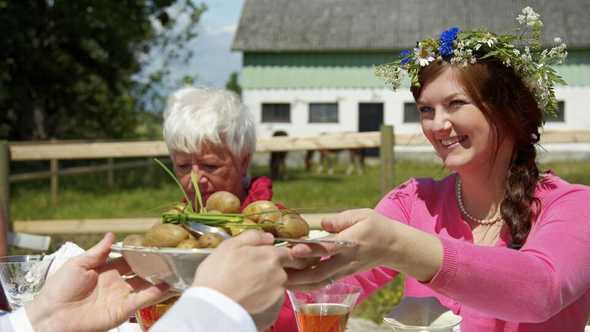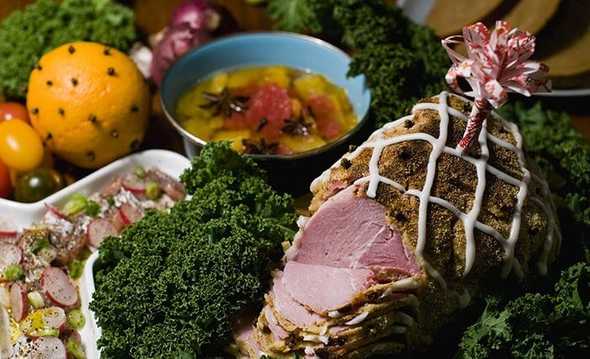Swedish Holidays
October 17, 2015
I’m still surprised at how many public holidays there are in Sweden. Official Swedish holidays are divided into two categories – the Christian and non-Christian holidays. Christian holidays typically comprise of the classic Christmas, Epiphany, and Easter, Ascension Day, Pentecost and All Saints’ Day. On the other hand, the non-Christian holidays typically include Swedish National Day, New Year’s Day, International Worker’s Day and Midsummer.
Public holidays are called “röda dagar” in Sweden, which means “red days” and are the same as bank holidays. Furthermore, when it comes to Swedish holidays it is quite common for businesses to close at noon the day before the holiday itself. This normally depends on your company so ask before you start getting ready to shut your computer down for the holidays.
There is also a tradition in many holidays in Sweden to celebrate on the eve of the holiday and not on the day of the holiday itself. This gets really weird around Christmas when Swedes celebrate on 24th rather than the 25th.
The most important Swedish holidays are Christmas Eve, New Year’s Eve and Midsummer Eve.
Updated for 2018: I’ve updated the dates in this article for 2018.
All The Facts You Need to Know About Swedish Holidays
New Year’s Day (Jan 1)
New Year’s Day here is just like most places and one of the most popular holidays. Celebrated on January 1st, this holiday is celebrated not only in Sweden but also in most countries, if not all.
Epiphany (Jan 6)
Most people in Sweden get the day off for Epiphany.
Good Friday (March 30)
The Good Friday is one of the few official religious holidays in Sweden. This is a classic red day that you should get off from work, and some companies will let employees work a half day the day before. Gives you time to prepare for Easter too.
Easter Day (April 1)
Easter Sunday, or simply Easter is another holiday. Easter is called Påsk in Sweden and comes with the standard giving of Easter Eggs. They are a little different compared to places like the UK, as in you get an egg filled with candy rather than a chocolate egg. Most Swedes make something called Påskris which are branches with little feathers tied to the top, and a traditional activity some people like to do.
Easter Monday (April 2)
The day after Easter Sunday is Easter Monday and is another one of the classic Swedish holidays as well as in some countries. Another red day.
May Day (May 1)
May Day, Labour Day or International Worker’s Day, it is a holiday that celebrates the working classes. It is popular here, and many people use this day to arrange peaceful demonstrations and protests about worker’s rights.
Ascension Day (May 10)
Ascension Day is a standard Christian holiday. Sweden is a mostly secular country and so this day lacks most of the religious tradition. You can find religious events if you look for them.
Pentecost (May 20)
Another standard Christian holiday but this normally falls on a Sunday so no day off.
Sweden’s National Day (June 6)
Swedish National Day is very popular here, with lots of events across the country, and even the buses have little Swedish flags on them. The national park here Skansen hosts a traditional national day festival with class traditional dancing, music, and more.
Swedes are very proud of their country and are more than happy to tell you stories from Swedish history during their National Day.
Midsummer’s Eve (June 23)
Midsommar is huge. This is the middle of the year, and a time when all Swedes get together with their families and celebrate the summer. If there was one bank holiday to catch in Sweden, this is the one.
Many Swedes head to the archipelago (where possible) and host dinner parties outside, eating herring and dill potatoes.
Midsummer or “Midsommar” in Swedish is a classic Swedish holiday, where friends and family go back to their roots and enjoy the classic Swedish meal of herring and potatoes.
Halloween / All Saints’ Day (Nov 3)
Halloween is a pretty new thing in Sweden that has started to get more popular in the last 5/10 years. Swedes do all of the classic US style Halloween things like parties, “trick or treating” and eating candy.
Christmas Eve (Dec 24)
In Sweden, Swedes celebrate Christmas on the 24th and celebrate the eve of Christmas rather than Christmas day as they do in the UK and the USA.
Christmas is a huge family event in Sweden. Some stay in their towns and cities, and others travel out into the countryside and go skiing. Then there is the Julbord, a table filled with food like cooked ham, meatballs, herring, potatoes and more.
It’s a great experience and definitely worth a visit. Plus there is a great Christmas Market in Gamla Stan, the old town in Stockholm.
Christmas Day (Dec 25)
Christmas Day is another red day in Sweden. Everyone takes the day off but it’s not the standard Christmas. Still a great day to spend with family and friends.
Boxing Day (Dec 26)
Boxing Day is just a regular day off during the Christmas period and there is nothing special about it in Sweden.
New Year´s Eve (Dec 31)
New Year’s Eve is the last day of the year and is a big party night. Everyone meets friends and family, arranged dinner parties, and in Stockholm, there are numerous firework displays through the town. There are also some places like Slussen that clear a public area to let people fire fireworks.
So there we go; a list of the main Swedish holidays. I have missed a few out, which are those that I’ve not noticed since being here or that are really not celebrated.
How have you found holidays in Sweden? What do you think about Midsommar and celebrating Christmas on the 24th instead of the 25th? Let us know in the comments.
Photo Credits: Lena Granefelt/imagebank.sweden.se

